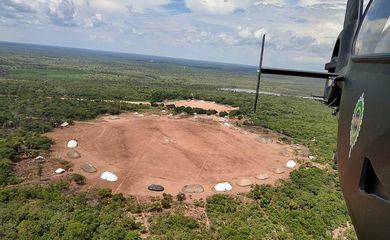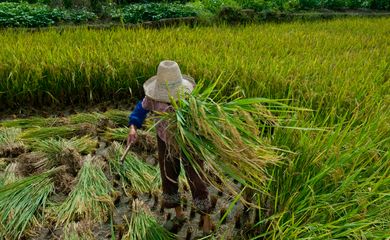Inter-American Court: Brazil state omissive in landless worker’s death

The Inter-American Court of Human Rights has convicted the Brazilian state for failing to investigate the murder of rural worker Manoel Luis da Silva, shot dead by fazenda employees in May 1997 in Paraíba.

To the court’s judgment, the country is responsible for the delay in clarifying the facts, failing to punish those responsible, and violating the family’s right to the truth.
The court is the autonomous regional judicial institution tasked with enforcing and interpreting the American Convention on Human Rights, to which Brazil is a signatory.
“In its sentence, the Inter-American Court of Human Rights declared the international responsibility of the Brazilian state for the lack of due inquiry and the violation of the guarantee of a reasonable time limit in the criminal proceedings regarding the murder of rural worker Manoel Luis da Silva,” Judge Nancy Hernández López, head of the court, stated while announcing the decision on Tuesday (Feb. 18).
The ruling reaffirms the conclusion of the Inter-American Commission on Human Rights, which, upon submitting the case to the court in November 2021, said the Brazilian state “failed in its duty to investigate the victim’s murder with due diligence.”
As a result of the sentence, the court ordered Brazil to implement various measures of reparation. The Brazilian state, among other things, is to publicly acknowledge its responsibility for the violation of the Silva family’s rights to the truth and to the victim’s personal integrity; compile and publicize information on violence against rural workers in Paraíba; and pay compensation to Silva’s widow and two children, who should also receive medical, psychological, and psychiatric care if necessary.
The court will monitor compliance with the sentence. One year after the ruling, the Brazilian state must present a report on the measures it has taken.
The murder
Silva was murdered on May 19, 1997, in São Miguel de Taipu, a Paraíba municipality about 50 kilometers from the state capital, João Pessoa. He was 40 years old, a member of Brazil’s Landless Rural Workers’ Movement—MST—and took part in the occupation of the Fazenda Amarelo, owned by Alcides Vieira de Azevedo. When he died, he left behind his wife, Edileusa Adelino de Lima, who was two months pregnant, and a four-year-old son.
According to the report of witnesses, shortly before the murder, Silva and some of his companions left the occupation to go shopping at a nearby grocery store. On their way back, they were approached by employees of a neighboring property, Engenho Itaipu, which was being expropriated for land reform.
The results of the police investigation and the subsequent complaint by the Paraíba prosecutors show that the workers who approached the group were armed with large-caliber rifles and assaulted them before firing the shot that hit Silva.
The state prosecutors charged two people with Silva’s death: farmer José Caetano da Silva and cowhand Severino Lima da Silva, 53. The two were not tried until 2009—12 years after the crime. And even though it was recognized that Caetano and Lima took part in the rural worker’s murder, they were acquitted by the jury.
Commitment
In a statement, Brazil’s Ministry of Human Rights and Citizenship said that “in compliance with internationally reinforced commitments, the Brazilian state reaffirms its full willingness to honor its obligations to the Inter-American Court of Human Rights and the Inter-American Human Rights System. As this is a case of violence in rural areas, the ministry has adopted various measures to promote the democratization of access to land and combat rural violence. As a result, many of the reparations requested by the Inter-American Commission and the victims’ representatives are already underway in the country.”






